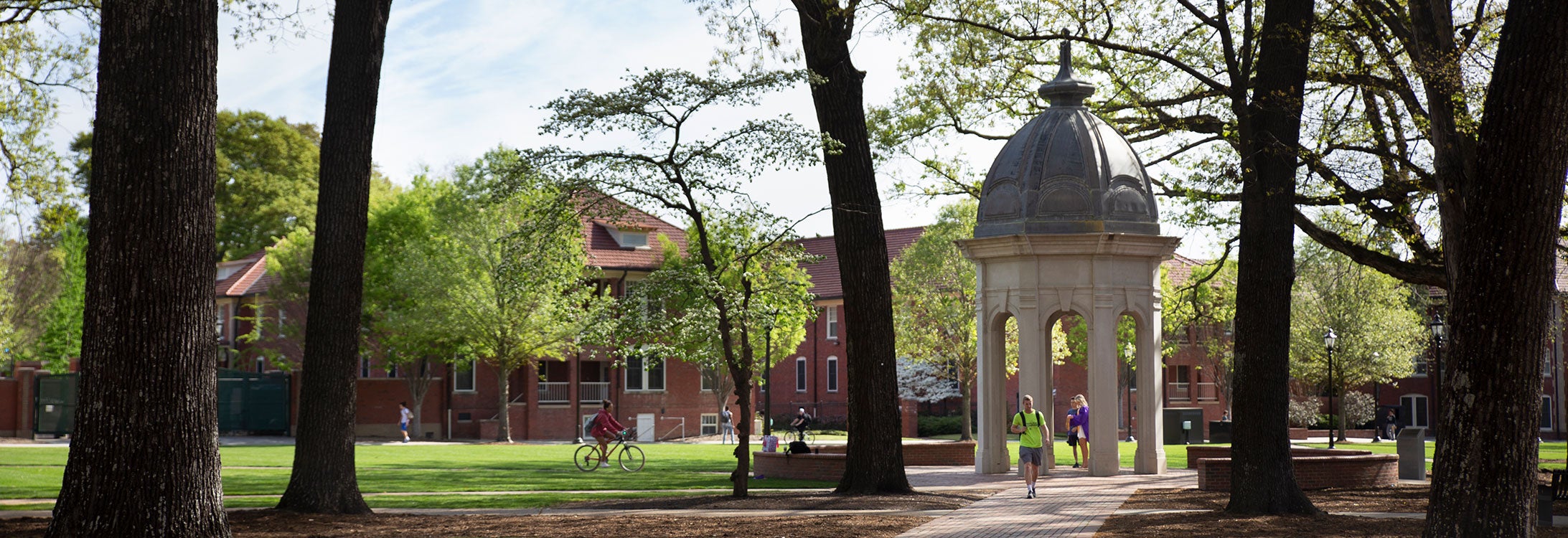Medical Ethics Collaborative
Medical Ethics
The Bioethics Collaborative provides administrative support to the Medical Ethics Committee (MEC) of Vidant Medical Center. The MEC, which was established as a medical staff committee in 1983, has a three-fold charge:
- to sponsor continuing education programs,
- to provide advice and review upon request regarding the care of individual patients,
- to develop and recommend hospital policies on bioethical issues.
It is composed of physicians, nurses, medical ethicists, a social worker, an educator, an attorney, and a community representative. The MEC has several subcommittees including the Adult Consultation Subcommittee (ACS), the Pediatric Consultation Subcommittee (PCS), and the Ethics Education Subcommittee.
Any health care professional, patient, or family member may request the assistance of the ACS or PCS in addressing an ethical issue in patient care. Persons wishing to bring a request to the committee should first contact a hospital patient care coordinator or chaplain, who will direct the request to the appropriate committee members. The Ethics Education Subcommittee is responsible for organizing educational workshops for Vidant Medical Center.
For further information about the MEC and its activities, contact the Bioethics Collaborative at 252-744-2361.
Case Consultation
Ethics case consultation is a service offered by the MEC to help physicians, hospital staff, patients, and families examine moral questions that may arise in the care of a patient. Case consultation is designed to help all those involved in the patient’s care to understand the situation clearly, identify potential options, and come to a reasonable resolution of the question. Any VMC patient, a patient’s family member, guardian or health care agent, or any member of the health care team may request an ethics case consultation at any time, day or night, by contacting a hospital patient care coordinator or chaplain.
To contact a patient care coordinator or chaplain, please call the hospital switchboard at 252-847-4100 and ask for the patient care coordinator or chaplain on call. The patient care coordinator or chaplain will contact the chair of either the Adult Consultation Subcommittee (ACS) or the Pediatric Consultation Subcommittee (PCS). The chair will contact the person requesting the consultation and if a consultation is indicated, he or she will call a meeting of the ACS or PCS, usually within 48 hours of the request.
The subcommittee members will meet with members of the health care team, members of the patient’s family, and the patient (if competent). The chair will convene the meeting, and explain that the purpose of the meeting is to explore the issues posed by the case and to help those involved come to a mutually agreeable resolution of the issues. The case and issues it poses will be presented and followed by open discussion of the issues.
ACS/PCS members will seek to clarify the issues, identify and discuss alternative courses of action, and, if appropriate, suggest a course of action. Any suggestion offered by the ACS/PCS is purely advisory; patients or their surrogates and their health care providers retain the authority to make health care decisions.
For further information about case consultation, contact the Bioethics Collaborative at 252-744-2361.
Statement on Artificial Nutrition and Hydration
Drafted by the Subcommittee on Artificial Hydration and Nutrition
Note: This statement is intended to help physicians, patients, and their families think about difficult decisions relating to the use of artificial hydration or nutrition during end-of-life care.
During the course of an illness, a patient often loses the ability to receive, desire, or require nutrition or hydration by natural means. When a patient can no longer receive food and fluids normally, artificial nutrition or hydration are medical treatments that can benefit the patient by helping the patient to maintain proper nutrition and fluid and electrolyte balance. Since inadequate nutrition and hydration can result in death, artificial nutrition and hydration can also benefit the patient by supporting life. On the other hand, artificial nutrition or hydration can sometimes cause harm to the patient.
Although healthy people feel hunger when they are deprived of food and thirst when they are deprived of fluids, patients who are dying may no longer feel hunger or thirst. During the body’s natural dying process, the body starts to shut down and the patient may lose the desire for food or fluids. Since artificial hydration and nutrition may cause harms to the patient, force-feeding a dying patient may sometimes do more harm than good.
Some people may be concerned that withholding or withdrawing artificial nutrition or hydration is the same thing as starving a patient, but this is usually not the case in a patient who is dying. When a dying patient (or his or her surrogate decision-maker) decides to forego artificial nutrition or hydration, the patient’s disease is the cause of death. From a medical perspective, withholding or withdrawing artificial nutrition or hydration from a dying patient is no different from the decision to forego any other medical treatment, such as artificial ventilation, which may prolong dying.
Although artificial nutrition and hydration are medical treatments, food and fluids have a great deal of cultural and symbolic value. People associate food and fluids with love and care: feeding a person is often equated with caring for that person. However, artificial nutrition and hydration are medical treatments that have no necessary connection to caring. Patients who are not receiving artificial nutrition or hydration may still be provided with adequate care. The medical and nursing staff can still provide a great deal of palliative care for the dying patient that does not involve the administration of artificial nutrition and hydration.
The normal intake of food and fluids can also provide the patient with many psychological benefits, such as pleasure, satisfaction, comfort, and a sense of dignity and control. However, since artificial nutrition and hydration bypass the normal method of receiving food and fluids, they may not provide the patient with any of these psychological benefits. Indeed, artificial nutrition and hydration can sometimes have the opposite effect, especially when these medical treatments threaten the patient’s sense of dignity and control.
